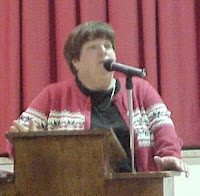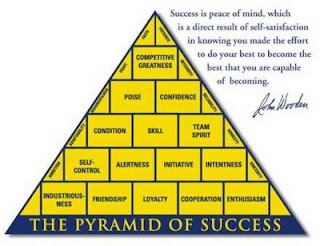 I saw my hero yesterday. She came over from her new job as the Jr. High principal to see the Halloween parade. I had been thinking about her lately as I read aloud to my classes, A Boy in the Girls' Bathroom written by Louis Sachar. This is the story of Bradley Chalkers, a student who makes a disaster out of everything. He meets Carla, the school counselor and with her support, turns his life around. I feel like Keitha Lane was the Carla of Laurelville and for me as a teacher.
I saw my hero yesterday. She came over from her new job as the Jr. High principal to see the Halloween parade. I had been thinking about her lately as I read aloud to my classes, A Boy in the Girls' Bathroom written by Louis Sachar. This is the story of Bradley Chalkers, a student who makes a disaster out of everything. He meets Carla, the school counselor and with her support, turns his life around. I feel like Keitha Lane was the Carla of Laurelville and for me as a teacher.It seems funny to think of this short little woman as a super hero, but her impact on the teachers and students at Laurelville during her eight years as principal was amazing. Now, in all honesty, I had never met a boss that I liked too much, before she took on our school. And our start together was rockier than the Rocky Mountains. However, she pushed, pulled, prodded, encouraged and demanded, all while being a friend, and supporting me in my growth as a teacher.
During her time as principal, whenever I had an idea that I wanted to try in the classroom, she would say, "give it a try and we will see how it works." She found funding to go from four computers in my language arts class to twenty-four. She purchased an LCD projector and Doc camera, to use to show students' work. When I first found out about Study Island, the on-line learning program, she said, "let's give it a try." Now it is used throughout the district. It didn't seem to matter what the situation was, she was always about finding new ways to help the students.
As I look back on our time together, I could never thank her enough for the impact she had on my life. And, as I look at my students each day when we come to the circle to talk at the start of each class, my hope is that in some way, I can make a student feel the way she made me feel. I guess, as far as I am concerned, she is the superest of the super heroes.

















